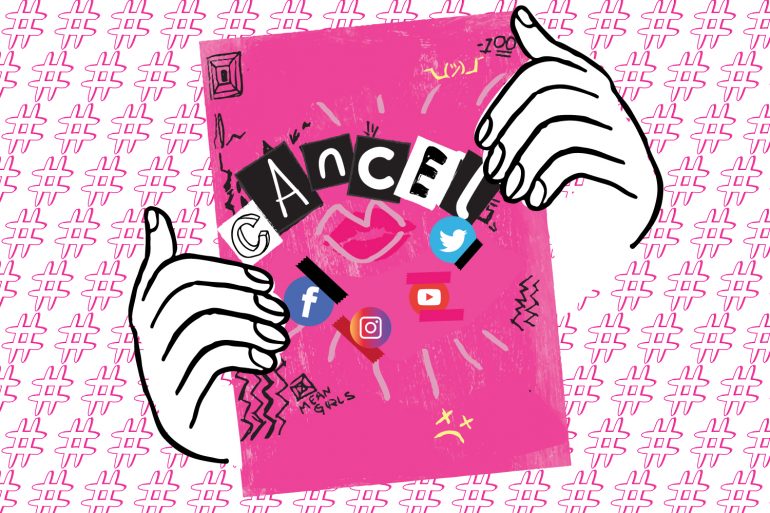The idea of being harsh, blunt or straight up rude is seen as a symbol of power in fashion. We fear the boss who yelled at the intern last week over something seemingly small, or laugh at Janice Dickinson on America’s Next Top Model who outrageously told a size six model she might as well be overweight, something that would for sure get her “canceled” by today’s standards.
We’re told from the minute we take our first steps into the industry that it’s tough, it’s cruel, you’re not always going to make friends with everyone.
Movies like The Devil Wears Prada glamorize the idea of a horrible boss who takes jabs at you on the daily, coworkers who only want the worst for you and an industry that’s seemingly impossible to feel comfortable in.
While, of course, it’s a movie, it’s all still based on some underlying of truth.
What the Business of Fashion calls “cutthroat organisational cultures,” are found all over the industry.
Why do we allow this to happen? Why do we see intimidation and bullying as a sign of power?
We see this in fashion cancel culture as well.
Instagram account Diet Prada has almost 2 million followers, many of them including celebrities such as Chrissy Teigen, Gigi Hadid, Kaia Gerber and more. Their claim to fame is calling out designer copycats and fashion faux pas from the runway to the red carpet and everywhere in between.
Imagine this: it’s the Golden Globes, Academy Awards, Met Gala, etc. You’ve been waiting for this moment your whole life. You go through the months long process of working with a designer, a team of nearly twenty to achieve the look of a lifetime.
And then, Diet Prada calls you, “a Halloween table cloth” or that you look like a “first year fashion school draping project” for their followers to laugh at.
Yes, their account is a guilty pleasure for many of us; we love to laugh at Fashion Nova not-so-subtly knocking off every single look Kim Kardashian West wears. However, is this kind of call-out culture productive?
Promoting hate and publicly shaming people over their looks isn’t something that we should be applauding or laughing at. Yes, people make terrible mistakes on the red carpet. But who are we to judge these people on the biggest night of their lives?
Cancel culture across fashion is something we see on a daily basis. We saw this recently with KKW’s Skims, previously named Kimono and a few years ago with celebrities facing backlash for wearing Marchesa, designer and ex-wife of Harvey Weinstein, Georgina Chapman’s label.
Let me be clear, appropriating culture is never something that should be justified or have excuses made for. That being said, Kardashian West handled the situation of having people including the Japanese government, demand her line be taken down, with class and respect.
She apologized, completely rebranded to Skims, and acknowledged her inappropriate mistake.
Inappropriate, not inexcusable.
Georgina Chapman has been a huge victim to cancel culture over the past few years as the Harvey Weinstein investigation and trial set sail. Even though she has disconnected herself from her ex-husband and moved on with her life as best she can, she faces mass backlash against herself and her label Marchesa.
At the 2018 Met Gala, Scarlett Johannson chose to wear Marchesa, the year after the allegations came to light. Many called her a hypocrite as a supporter of the #TimesUp movement, to which she replied, “I wore Marchesa because their clothes make women feel confident and beautiful and it is my pleasure to support a brand created by two incredibly talented and important female designers.”
The likes of Anna Wintour also defended Chapman, writing in Yahoo’s June 2018 Editor Letter “I am firmly convinced that Georgina had no idea about her husband’s behavior; blaming her for any of it, as too many have in our gladiatorial digital age, is wrong.”
People need to learn from their mistakes in order to grow. When you’re a toddler, you learn not to touch the hot stove the wrong way, by touching it. Your parents didn’t place a lifetime ban from the kitchen on you after this. They probably scolded you, then ran your hand under cold water.
Of course, cultural appropriation and sexual assault aren’t just a burn on a child’s hand, but we should allow people to grow from their mistakes in order for them to become better people. What good is created from forever holding grudges over learning lessons, or blaming people whose stories we don’t even know the half of.
Cancel culture and bullying in fashion alike only create hostile environments for not just people in the situation, but for everyone in the industry overall. They barr people from making mistakes, creating anxiety and fear, not at all an environment that cultivates upward growth.
Words by Olivia Hawkins
Graphic by Day Toscano

